. . . Specifically, the Biblical (and Patristic) Teaching on Abortion

“DagoodS” is a very thoughtful atheist with whom I have enjoyed many challenging dialogues (see them listed under his name on my Atheism web page). I’ve also met him in person several times. This critique of mine has to do with his deconversion from Christianity. It seems self-evident that if an atheist did not have an adequate understanding of Christianity or the Bible when he or she was a Christian, it would explain a lot as to why they left the faith (basically, I respectfully submit, they rejected a straw man rather than the real thing). This is why I critique deconversion stories: a thing that atheists absolutely detest (though they constantly criticize all aspects of our belief and personal faith). Goose and gander, I say! His words will be in blue.
*****
I thought it would be interesting to try and get some of DagoodS’ thoughts about the Bible, in order to establish more about his hostile presuppositions. And so I ran across on his blog, a piece entitled, “This Leopard Can’t change its Spots” (6-27-08).
How did he view the Bible as a Christian? Well, there were already many indications and danger signs that he was misinterpreting it even then: so many that I could have easily predicted that he had a good chance of forsaking his faith and going atheist if I had met him ten years ago. He talks about what Christians do, as he observes them now:
*
Then he acknowledges that he (the “leopard”) used to do exactly the same:
So now we have one of the hundreds of cases in which a former Christian, who wasn’t adequately informed of his faith when he still had it, projecting his past shortcomings onto most Christians that he meets. He rejected a straw man in the first place and now he fights straw men incessantly in order to justify his decision to abandon the straw man.
This is what we learn in examining deconversion stories. It’s always the same [I’ve critiqued some twenty of them by now]. I’ve yet to find one that is any different (perhaps I will one day if I keep looking hard enough).
DagoodS proceeds to give examples of what he didn’t believe the Bible taught, even as a Christian. He didn’t think it taught equality of the sexes. And sure enough, he didn’t hold (as a Christian) that the condemnation of abortion was taught (directly or indirectly) in the Bible:
*
Wow. Isn’t it strange?! I look at the very same Bible and find about 100 passages (take out the deuterocanonical ones if you must) having to do with abortion in many of its aspects: The Bible’s Teaching on Abortion.
But DagoodS couldn’t “see” all those! I guess he didn’t know his Bible very well, and since he is a leopard who can’t change his spots (his own description, not mine), he continues to not know it very well today. So he fights against it, to justify his decision to stop believing that it is inspired and infallible.
There is no question whatsoever that the Bible condemns abortion: in many different ways. It defines the preborn child as indeed human and a person, and it forbids murder of persons. Case closed. End of story. That is really all that is required: A+B. Elementary logic. Moreover, when it condemns, e.g., child sacrifice, logically, the preborn are included, since they are considered children as well. It has passages like:
2 Kings 15:16 At that time Men’ahem sacked Tappuah and all who were in it and its territory from Tirzah on; because they did not open it to him, therefore he sacked it, and he ripped up all the women in it who were with child.
It’s wrong to do such things; therefore, abortion (as an act that is exactly the same in essence: “ripping up” a woman with child) is also wrong. The goal is to murder the child, which is an especially evil and despicable act.
But is this an exercise in logic that was too difficult for DagoodS as a Christian and now? It’s not difficult to grasp these simple logical deductions.
It appears that the reason why DagoodS thought that the Bible didn’t prohibit abortion is because he was demanding an explicit passage (“There is no specific verse saying ‘deliberate abortion is wrong.’”). But this itself is a peculiarly Protestant and most unbiblical way of approaching biblical exegesis.
The Bible never teaches that explicit Bible passages must be found in order to believe in a doctrine or tenet. It’s a myth. I’ve written about this many times (see. e.g., “Explicit” Bible Proofs and Protestant Double Standards) and have challenged Protestants to show how I am wrong, and they always go silent or retreat to irrelevant platitudes or Bible verses.
Yet he says, “What I don’t see are Christians who actually know their Bible.”
To use another well-known proverb (like the leopard and its spots): talk about the pot calling the kettle black . . .
What method do you propose I could utilize to objectively determine why I deconverted?
To dialogue with Christians who understand the Bible and Christianity far more than you did before and do now.
I concentrate on the first one. It is quite obvious to me that you greatly lacked skills in biblical hermeneutics and exegesis, simply from looking at the conclusions you came to. You could look at the Bible and not see that it condemned abortion. You didn’t get it that Christianity teaches the equality of men and women.
So the problems were in place long ago, and they were primarily what caused you to deconvert, in my opinion, because you believed in a caricature of Christianity and so rejected the same caricature when you found it inadequate. As Hosea 4:6 states (RSV): “My people are destroyed for lack of knowledge;. . .”
*
Sorry; already gave them . . . as usual, the atheist despises any analysis of his deconversion, because that is what he hangs his hat on. It’s scary to realize how flimsy the rationales are. They don’t wanna go there . . .
I know this little tidbit of information that you offered: your atrocious exegesis of the Bible and inability to decipher its contents in areas like abortion. You yourself said such things caused you to start questioning biblical inspiration. It’s not even speculation on my part to note what you said about yourself. And so that is an objective way to analyze your defection: you say there is nothing about abortion; I say there are about 100 passages. You can try to explain all those away if you wish. I won’t hold my breath, given the way you are systematically ignoring dozens of questions and arguments in this combox thread.
*
I just gave you one. I’m sure you’re absolutely delighted that I have done so, right?
*
I’m not interested in games and ring-around-the-rosey, but serious analysis and comparison of the plausibility of opposing positions. The abortion-in-the-Bible discussion offers us one of many ways to do so.
*
I have never claimed that and I am an Internet apologist if there ever was one. Calvinism requires that (since it denies that a true Christian can ever fall away from Christianity), and I am not a Calvinist. I wouldn’t have said that as a Protestant, either, because I was an Arminian, and they believe that Christians can fall away and commit apostasy. Therefore, I call you a “former Christian.” Pretty hard to do that if I thought you never were one, ain’t it? It’s possible, of course, that you never were one, but I don’t assert that. I accept your report at face value.
I have said that I think your knowledge of important issues within your Christianity was woefully deficient. In other words, you seem to have had only a poor acquaintance with the apologetics that may have kept you a Christian. It’s why I do what I do. So many times people reject Christianity because they falsely believe that it is something that it is not. My job as an apologist is to show that it is 1) a great thing; 2) a true thing; and 3) that the reasons in favor of it are far better than those against it.
This causes the Christian to have confidence and to be spared from various counter-influences. And of course within the Christian paradigm I argue that Catholicism is the fullest and most true expression of Christianity. Generally when dealing with atheists, though, I defend general Christianity and don’t get into Catholic issues unless I am asked something specific about that.
To dialogue with Christians who understand the Bible and Christianity far more than you did before and do now.
*
Then why do you still seek them out? You still think someone out there can convince you to return to Christianity? Are you trying to do the Karl Popper falsification thing? You will always find the answers unsatisfactory, no matter how good they are. That is the whole point! You do, I believe, because of the reasons I have outlined, not because the answers were always insufficient in and of themselves, or untrue.
*
I have no idea about these people unless I see something concrete. What I have seen myself shows me that you were abysmally ignorant of sensible, proper biblical interpretation, at least in those particular areas. But you refuse to pursue that line of critique, to try to prove me wrong. I’d be happy to go over my hundred or so proofs of the biblical prohibition of abortion (the example I have highlighted), that you claim are actually not there, and therefore that Scripture is wildly eisegeted and mishandled by those with a pro-life agenda that they then wrongly project onto the Bible.
*
The same one that enabled you to figure out who the best defenders of the Resurrection are. You managed to find those. So you can figure out who the best defenders of Scripture are. But you have to truly interact with them (assuming they have the time and/or interest to do it with you). You can’t skirt and evade the issues and refuse to answer direct questions and ignore direct critiques, as you have been mostly doing with me. People don’t have the patience for that. It has to be a real dialogue.
*
Yes, that is a real problem, and a major reason I am Catholic, but that is not your immediate issue. That comes later. Right now you need to even be convinced of matters that all these groups (apart from rank heretics like the Mormons who reject historic Christianity) hold in common: does God exist; Who Jesus was, etc. First things first.
But in passing, note that Catholics do not claim to be the sole true or correct group. We claim to be the fullness of Christianity, but we don’t deny for a second that other Christians possess large amounts of Christian truth as well. We’re not like the anti-Catholic Protestants who ridiculously deny that we are Christians at all.
*
At a bare minimum, If they know their faith well and can offer up halfway decent defenses of it and substantive critiques of your view. If you think I fill these criteria, dialogue with me. If you don’t, find someone else.
*
Never said I did, so that is neither here nor there. But I can tell if you don’t know something, when I read statements on your blog that prove that.
*
Of course they did. So what? This is a problem in your thinking; not necessarily theirs. You won’t even tell me what brand of Christian you were, Why not? Maybe you’re like the hostile guy I met at Jon [Curry]’s meetings. Turns out he was a former Jehovah’s Witness. So he was never a Christian at all.
I was asking you why you think anti-abortion is not taught in the Bible. I think that is a ridiculous position to take. It couldn’t be any more untrue than it is. Keep ignoring the challenge if you must. People reading this will see who had the better argument. They can read my linked paper with the biblical data and compare that to your ignorant bald statement to the contrary and see who knows what they are talking about when it comes to the Bible on that issue.
*
Lots of reasons, I’m sure.
*
I have already dealt with that. Talk about concrete issues and deal with them one-by-one.
When I was 7 years old and pleading with god every evening to make sure he had accepted my faith, I was assured by all the christians around me that I was indeed a child of god. After I was 8, I never doubted my salvation…until I actually began to doubt the coherency of the god-myth. When, as an adult, I went door-to-door witnessing and leading people to the lord on my own apart from any church program prompting me to, I was lauded as a fine example of a christian. Now I find christians claiming I was never at any time a real christian. I guess I’m too far removed from that cute 7 year old I once was. It’s rather ridiculous to watch christians desperately attempting to rewrite the histories of apostates, and their own assurances they gave those apostates when they were young. Google “reasons for my deconversion” to learn more about my apostasy.
I don’t have to do any of this, Phil. It is perfectly possible, biblically, that you were a Christian and later fell away. Lots of passages. So I say “former Christian” and speak of apostasy; that means falling away from something actually possessed in the past. “Deconversion,” likewise, refers to converting to one belief away from another. I take the report at face value. I lose nothing in doing that, anyway (from a purely tactical perspective). If you were not in fact, my argument doesn’t suffer from assuming that you were.
This particular argument is with Calvinists. Let them defend their own beliefs. I just wrote a book where I devoted more than a hundred pages refuting TULIP from the Bible. TULIP is a non-biblical tradition of men.
So if someone wants to deny that you or DagoodS or any number of atheists were ever Christians, they should at least be careful to be more precise in their terminology.
My critiques of deconversions don’t have to distort or deny what anyone was before at all. I ain’t fightin’ straw men, but [self-reports about] “former men.” Thus, I am now analyzing what DagoodS says about his past Christian self, and I think I am showing that, though he was a Christian, he was an abysmally ignorant one when it came to understanding the Bible (abortion being our present test case).
So I am taking him at his word and critiquing what he himself tells me he thought as a Christian, and I’m showing that the seeds of his apostasy were already quite apparent. Like I said, if I had known him then, I could have easily posited a real possibility of his falling away, because he wasn’t grounded firmly enough. He didn’t know his apologetics; nor did he know how to properly exegete the Bible.
This is what I invariably discover when analyzing deconversion accounts. If it is not the case with you, it’ll be the first time, and I’ll congratulate you for being a pioneer and will buy you a cigar and bottle of wine (being the wine-bibbing Catholic that I am).
Wrong thoughts, bad logic, lack of acqaintance with relevant facts: all of these can eventually cause a lack of faith, or erode a real, true faith, because the mind is always involved in the overall equation. This is why truth and true doctrine (and apologetics) are supremely important. The soul or the heart cannot rejoice and abide by what the mind rejects as false.
***
[further discussion in the original combox]
Let’s try something different. I’ll start where we agree and then move to areas we may not.
You state, “…[the Bible] forbids murder of persons.” I quite agree.
You also state, “It [the Bible] defines the preborn child as indeed human and a person…”
I am not persuaded this is necessarily true, however I agree that if one defines life (or personhood or humanity—whatever word you choose to use) to start at conception, one can use verses to support that argument.
In other words, I agree the Bible condemns murder of humans. And I agree one could use verses referring to fetuses, and events surrounding fetuses, to imply the fetus carries the characteristics of being human, as well as the rights thereof. And by combining those two concepts, one could reasonably argue the Bible condemns abortion.
However…
There are a few sticking points that cause me concern. Primarily the approach. If one first concludes life starts at conception, and then looks for support (a top-down method), they can find biblical support. But if one starts with the data to then derive a conclusion (a bottom-up method) it is not nearly as clear. I’ll address individual concerns:
Poetic Inferences
“Psalm 139:15 says babies are made underground. That’s not true. The Bible is false.”
Okay, Okay, I’m not really claiming that; but what would your response be if I did? You would (I presume) correctly note this is poetic literature, and not meant to be literally read. The Psalmist didn’t mean people were literally sharpening their tongues (Ps. 139:3) or had poison on their lips; the Psalmist is using symbolic language to convey a meaning.
According to the great Lutheran Hebraist scholar Franz Delitzsch (1813-1890):
As Adam was formed from the earth, so “the mother’s womb out of which the child of Adam comes forth is the earth out of which it is taken.”
So sure, it is a poetic expression, but it refers to literal things, just as poetic expressions of love ultimately refer to real things: the woman we love. Just because something has a poetic element does not automatically, intrinsically exclude literal referents. You can concentrate on this sort of detail, but it doesn’t overcome the overall thrust of the passage. It teaches that God formed every person, and that they were human and persons from conception:
Psalm 139:13-16 For thou didst form my inward parts, thou didst knit me together in my mother’s womb. I praise thee, for thou art fearful and wonderful. Wonderful are thy works! Thou knowest me right well; my frame was not hidden from thee, when I was being made in secret, intricately wrought in the depths of the earth. Thy eyes beheld my unformed substance; in thy book were written, every one of them, the days that were formed for me, when as yet there was none of them.
From our biological knowledge now, we know that a new person is formed as soon as the DNA of his or her two parents is combined. That is when a new person begins. We know that. It’s undeniable. There is no other non-arbitrary starting point. The ancient Hebrews didn’t know this, but when they are referring to God forming and knitting together this “thing” in the womb, they referred to “it” as “me”; therefore they obviously thought of “it” as a person; a human being; identical with the same “biological entity” that it developed into after “it” was born. Thus, Mary was “with child” etc.
There is not the slightest question about any of this.
To claim a “contradiction” by literally applying poetic symbolism is an atrocious exegesis.
In the same way, we need to be careful to avoid the same error by using poetry to make literal claims—that somehow a fetus obtains humanity by reference within poetry. Job 38:7 says stars have mouths and Job 38:8 says the sea has a womb. Do we grant stars and the sea to have actual human characteristics because poetry ascribes it certain attributes? Of course not.
Psalms is not without many literal utterances, too. After all, even poetry cannot exist without real, literal things that are the subject of the poetry.
But it is easy to determine what is meant to be literal by simple cross-referencing. If a passage (about preborns, in our discussion) in the Psalms can be cross-referenced in other biblical literature that is not primarily poetic, then we can safely assume that it is meant to be taken literally.
In any event, the biblical argument does not rest on just the Psalms, anyway, by a long shot. You can try this argument, but it fails, and there are still scores more passages you have to explain (away).
Again, one could certainly use these verses to bolster the argument a fetus has special significance—I just don’t see the verses themselves making the argument.
When does life start?
Ancient Near East had a different concept of gestation due to the influence of an agricultural society. They understood one plants a seed under dirt. Waits a bit. And a plant begins to grow right where the seed was. Since the seed disappeared, and they weren’t stupid, they understood the plant came from the seed.
In the same way, a man ejaculates into a woman. After a bit, she starts to swell with the “plant” or baby growing inside. Eventually the baby breaks the surface, and is born. It was reasoned–just like a plant–the man planted a seed; it grew in the female, and then came forth.
What was not clear was when life particularly started. The Bible repeatedly refers to life=breath. No breath; no life. Life; breath. I wrote on it here. While I think an argument can be made that the Bible indicates life begins at conception, I think equally an argument could be made the Bible states life begins with breath. A slightly better argument, in fact.
Unfortunately, we don’t have the actual authors to interview as to their meaning. Yes, one can use the top-down approach, first concluding life begins at conception and then finding verses to support it. But equally one could use the same method and first conclude life begins with breath and equally find verses to support it.
I wonder whether the method is the correct one to use.
Of course the Greek philosophers concentrated on when ensoulment happened, arriving at 40 days after conception for boys and 90 days after conception for girls.
The Bible on life beginning at conception (RSV):
Psalm 51:5 Behold, I was brought forth in iniquity, and in sin did my mother conceive me.
[What was conceived was David (“I / “me”). As soon as he began to exist, he had iniquity (original sin)]
Jeremiah 1:5 Before I formed you in the womb I knew you, and before you were born I consecrated you; I appointed you a prophet to the nations.
[What was “formed” was indeed Jeremiah. That takes it right back to the very beginning. The Jews may not have known their biology, but God knew about it. But the Jews could say, “God formed me” without knowing all the details. Now, if God knew Jeremiah even before he was conceived, he could hardly have not been Jeremiah when he was conceived, as if he existed more so before he was conceived than after. Therefore, he was a person from the instant of his conception]
Numbers 5:28 But if the woman has not defiled herself and is clean, then she shall be free and shall conceive children.
Isaiah 49:5 And now the LORD says, who formed me from the womb to be his servant, . . .
Luke 1:36 And behold, your kinswoman Elizabeth in her old age has also conceived a son; and this is the sixth month with her who was called barren.
The Bible supports the fact that human life and persons begin at conception. It’s not a prior assumption merely eisegeted into the Bible. It’s really there. That’s why the Church Fathers condemned abortion and all Christian traditions did as well until 40-50 years ago or so when many liberal denominations began caving into the secularist zeitgeist. There is a reason for that. It is because this is what the Bible had always taught.
Intentional termination of Pregnancy
Here is the crux of the matter. There are no biblical verses explicitly condemning intentional termination of pregnancy. You mention 100 passages “having to do with abortion in many of its aspects.” Great! Out of those 100—give us one (1) that says explicitly states, “Don’t have an abortion.”
(I didn’t respond to all 100 passages, which will probably disappoint you. I concentrate on passages that have to do with abortion—intentional termination of pregnancy. Not verses that mention someone is pregnant. Not verses referring to infanticide. In my opinion, by listing verses such as Gen. 25:21, stating “Rebekah became pregnant” as having to do with abortion only weakens the argument. Makes it look like the person is reaching; if this is what they rely upon to get to some magical number like “100.”)
Again (because I fear this will get lost) one can infer it from combining other passages—I am asking for one statement directly on point.
. . . the New Testament writings . . . don’t say a word condemning abortion. (Or the infanticide, either.) One could argue it was not mentioned because the option was not available to Christians. . . .
Non-canonical Christian writings directly addressed abortion—condemning it. Yet the canonical writings of the Bible are silent.
Finally, we should note this article on the historical fluctuations regarding abortion in the early church.
And I counter that linked article with these:
Abortion and the Church Fathers (Catholic Answers)
Abortion, Contraception and the Church Fathers (Fr. Mitch Pacwa, S. J.)
Early Church Fathers: Excerpts Pertaining to Abortion (Priests for Life)
Excerpt:
Both Saints Thomas and Jerome recognized that ensoulment and abortion were two distinct and separate issues. They both condemned abortion in the strongest possible terms (see Figure 43-2 for one of St. Jerome’s statements against abortion).
In any case, the matter of when the body is ‘ensouled’ has historically made no difference to the Catholic Church; see the quotes in Figure 43-2 by Saints Basil and Jerome, for proof. It is quite obvious from the language he uses that St. Basil had extensive experience in dealing with Fourth Century pro-abortion doublespeak.
DagoodS’ link above also dishonesty sought to enlist St. Augustine (354-430) as a pro-abortion “witness”. In fact, he (like Basil and Jerome and many other Church fathers) made his opposition to all abortion quite clear:
Sometimes this lustful cruelty or cruel lust goes so far as to seek to procure a baneful sterility, and if this fails the fetus conceived in the womb is in one way or another smothered or evacuated, in the desire to destroy the offspring before it has life, or if it already lives in the womb, to kill it before it is born. If both man and woman are party to such practices they are not spouses at all; and if from the first they have carried on thus they have come together not for honest wedlock, but for impure gratification; if both are not party to these deeds, I make bold to say that either the one makes herself a mistress of the husband, or the other simply the paramour of his wife. (De Nuptius et Concupiscus [“On Marriage and Concupiscence”], 1.17)
It remains rather self-evident that the Bible condemns abortion in the fashion that I have described. Human beings are conceived by God and are regarded as persons from the beginning, and not to be murdered, just like any other person. There doesn’t have to be a statement specifically about abortion because it is included in the broader condemnations of murder already. It is unreasonable to demand it.
Frankly, I was not that interested in this discussion as it was.
That would explain the lack of interaction with my arguments! We all have our interests. I understand that.
My viewpoints regarding exegetical arguments on abortion are not exactly riveting. I only commented out of courtesy to you, because you seemed so fired-up about it. You are free to reply or not. It is the internet, after all.
Okay. My perspective was that it was an illustrative test case of how a Christian loses his way, in misunderstanding biblical teaching (which, in this area, remains quite clear, in my opinion).
I have nothing personally against you. My task as an apologist is to offer counter- arguments and show that the arguments against Christianity and the traditional interpretation of the Bible do not succeed.
***
Related Reading:
“DagoodS” Deconversion Story: Critique and Truncated Dialogue [9-20-07]
***
(originally 12-13-10; expanded on 3-14-19)
Photo credit: [Max Pixel / Creative Commons Zero – CC0 license]
***






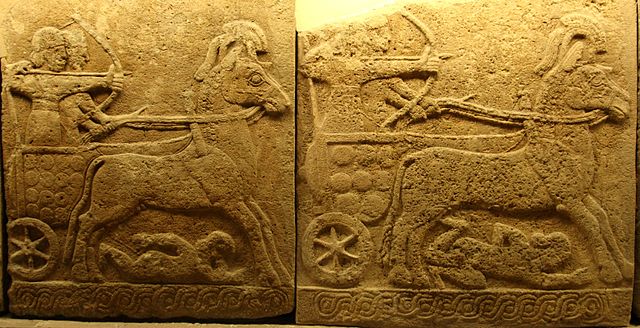
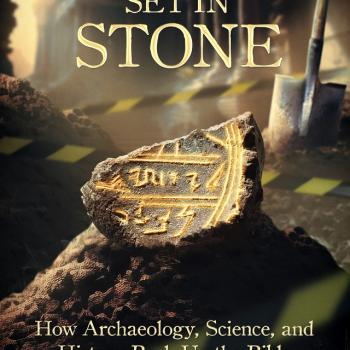
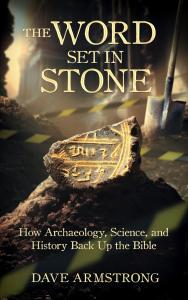






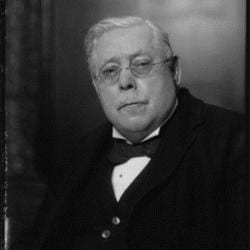
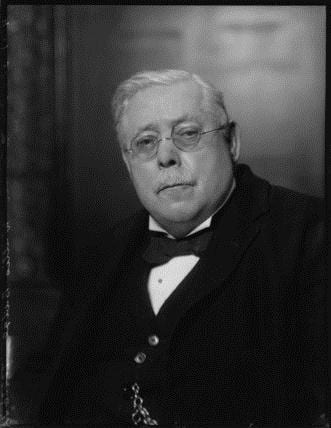








Debates w Atheist “DagoodS” (“Bible Difficulties”)
A rendering of a Lyapunov fractal, a type of bifurcational fractal named after Russian mathematician Aleksandr Lyapunov. Image from BernardH: a French mathematician: 28 July 2006 [Wikimedia Commons / Creative Commons Attribution-Share Alike 3.0 Unported license]
*****
These exchanges were fun, and in my opinion, prime examples of the inability of atheists (even former Christian ones, as this person is) to do cogent, sensible, plausible Bible interpretation. They just can’t do it. They are caught up in their own inconsistencies and hostility to established facts time and again (and, frankly, ignorance of the biblical text and a broad knowledge of Christian systematic theology). I’ve always noted that an atheist approaches the Bible the way a butcher approaches a hog. They’ll never understand it (even before they determine if they believe it or not) with this mentality.
***
“DagoodS” is a very thoughtful, sharp guy who likes to write about Christianity and particularly the Bible. He used to be what he calls a “fundamentalist” Protestant. He’s a lawyer. I have met him in real life several times. He’s part of a group of atheists that I have hung around with, now and then, and gotten along well with, for the most part.
***
Most of these exchanges (but not all) had to do with alleged Bible difficulties.
The posts and debates formerly listed here are now all posted on my Atheism and Agnosticism page, under the category of “DagoodS”.